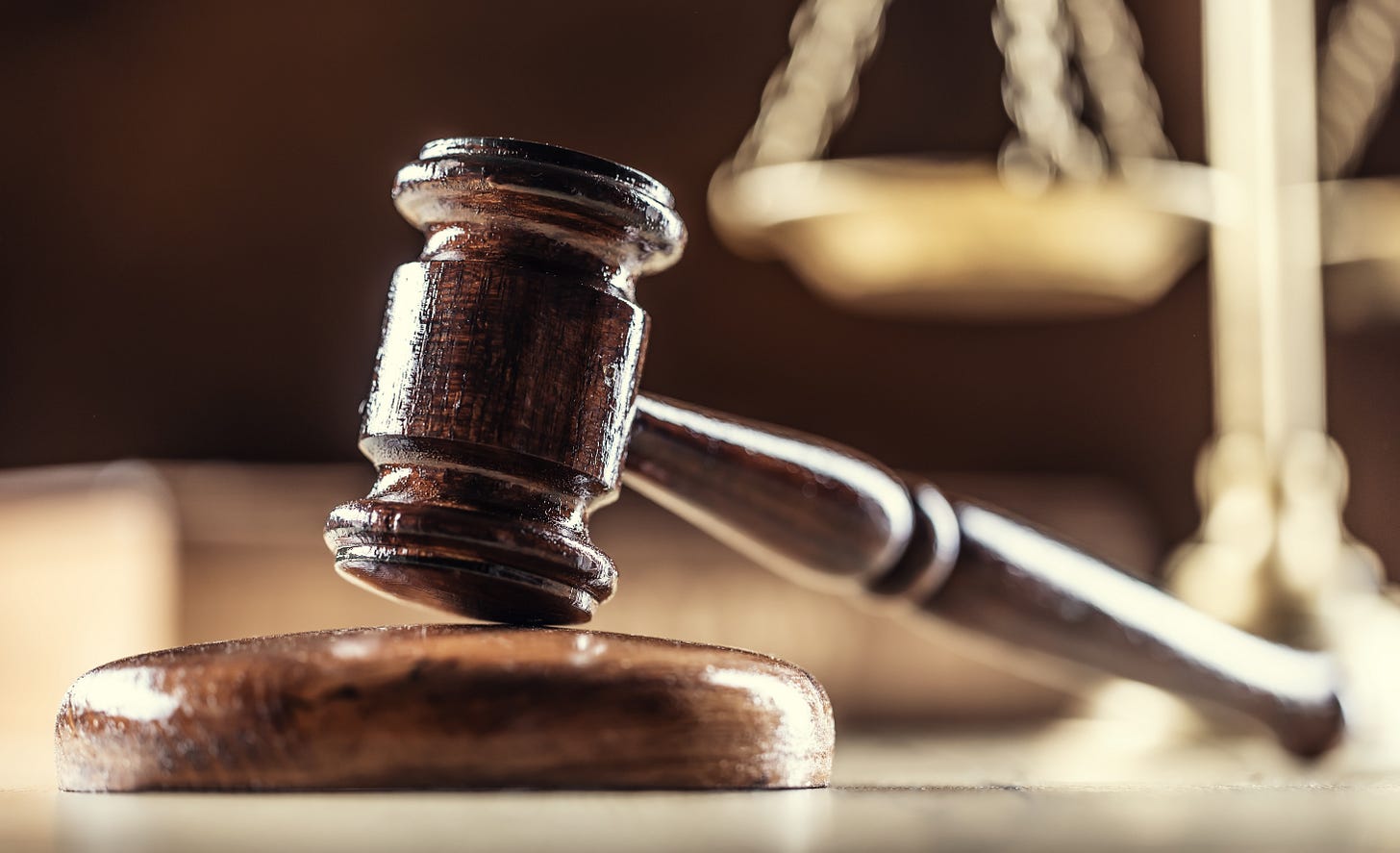One Voice
This morning, a federal appeals court issued a per curiam decision rejecting Donald Trump’s claim that he is immune from prosecution for crimes he allegedly committed trying to overturn the 2020 presidential election. Described as speaking “with one voice,” the decision was set down with no judge taking credit for the opinion. The three-judge panel, comprised of two Democratic appointees and one Republican, unanimously ruled that Donald Trump is not immune from prosecution.
The written decision is 57 pages, a lot for most of us to consume. We have included some highlights.
For the purpose of this criminal case, former President Trump has become citizen Trump, with all of the defenses of any other criminal defendant. But any executive immunity that may have protected him while he served as President no longer protects him against this prosecution.
Trump’s lawyers argued that because he was acting in his official role as president to “ensure election integrity,” he was therefore immune from prosecution. The judges were having none of it.
We cannot accept former President Trump’s claim that a President has unbounded authority to commit crimes that would neutralize the most fundamental check on executive power — the recognition and implementation of election results.
Former President Trump’s stance would collapse our system of separated powers by placing the President beyond the reach of all three Branches.
Because arguments were heard on January 9 and the decision wasn’t issued for four weeks, there was speculation that the judges were in disagreement. That is not the case, according to George Washington University law professor Randall Eliason. “But this per curiam opinion presents a unified holding that offers the best chance to be quickly upheld.”
Quickly is the operative word. Trump’s legal strategies are often centered on delay tactics since his legal arguments keep failing. It is expected that he will appeal to the U.S. Supreme Court. The appeals court has anticipated this move and set a tight deadline for Trump. He has less than a week to ask the Supreme Court to intervene.
The court’s single voice brokered no argument.
Presidential immunity against federal indictment would mean that, as to the president, the Congress could not legislate, the executive could not prosecute and the judiciary could not review. We cannot accept that the office of the presidency places its former occupants above the law for all time thereafter.
The Steady newsletter is supported by the Steady community. Please consider subscribing if you aren’t already a member.


And the people said, "AMEN."
It is a well-written and comprehensive, unanimous, decision. My hope is that the Supreme Court will refuse to hear the case and let this ruling stand.